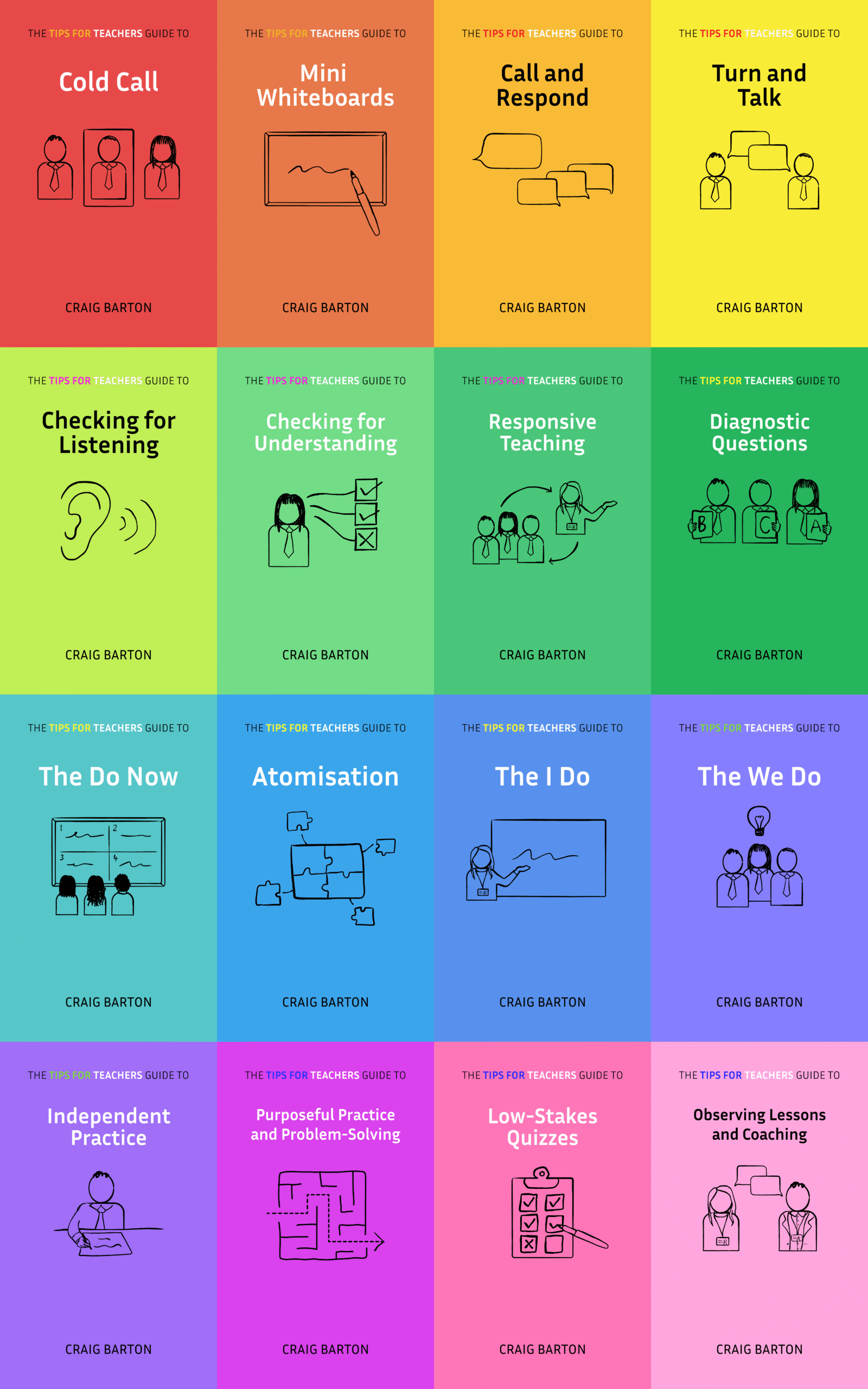
- Title: Professional Development & Cognitive Load
- Authors: Arielle Boguslav, Josh Goodrich, Ollie Lovell
- Access the original paper here
- Listen to a deep-dive podcast:
Paper summary
This paper explores the challenges of cognitive load in teacher development. It presents a framework for understanding the impact of cognitive load on teachers in the classroom, including how it can hinder their ability to implement new teaching strategies and manage student behaviour. The paper also discusses how teacher educators and coaches can identify potential sources of high cognitive load and develop strategies to help teachers mitigate its effects.
What are the key strategies teachers, coaches and those designing CPD can implement to help reduce the cognitive load?
- Chunking and automating processes: Break down complex tasks into smaller, manageable chunks that can be automated through rehearsal and practice. Examples include rehearsing in simplified contexts, focusing on one new skill at a time, assigning student roles, using seating charts, and practising repeatedly.
- Systematization: Establish common routines and systems to manage classroom activities, minimizing the need for in-the-moment decisions. This includes using timers or cues, organizing tools, and gathering materials in advance.
- Planning in advance: Identify recurring problem areas in lessons and develop solutions during planning time to reduce cognitive load during instruction. Examples include organizing materials, pre-setting rules for student questions, and adjusting lesson plans to address challenging activities.
- Narrowing and re-focusing attention: Help teachers prioritize essential information and ignore less important distractions, particularly during high cognitive load periods. This can involve managing the first 15 minutes of class, pointing out important cues, and providing explicit guidance on what to focus on.
- Using external reminders and cues: Employ visual aids, notes, live coaching signals, or other external reminders to prompt teachers to implement new strategies or adhere to existing routines.
- Managing emotions: Support teachers in reflecting on and managing stress and negative emotions related to teaching. This might involve reframing challenging situations, practising mindfulness, and offering validation and support.
- Delaying responses: Encourage teachers to defer addressing non-urgent student behaviour or questions until periods of lower cognitive load. Techniques include note-taking, developing “breathing systems” to gain processing time and pre-setting rules for specific lesson segments.
Quote
Because of the high cognitive load involved in teaching, helping teachers to become more effective in the classroom often initially requires not adding, but taking away: finding ways to help teachers free up cognitive resources – or stop doing something – so that they can focus on what matters.








